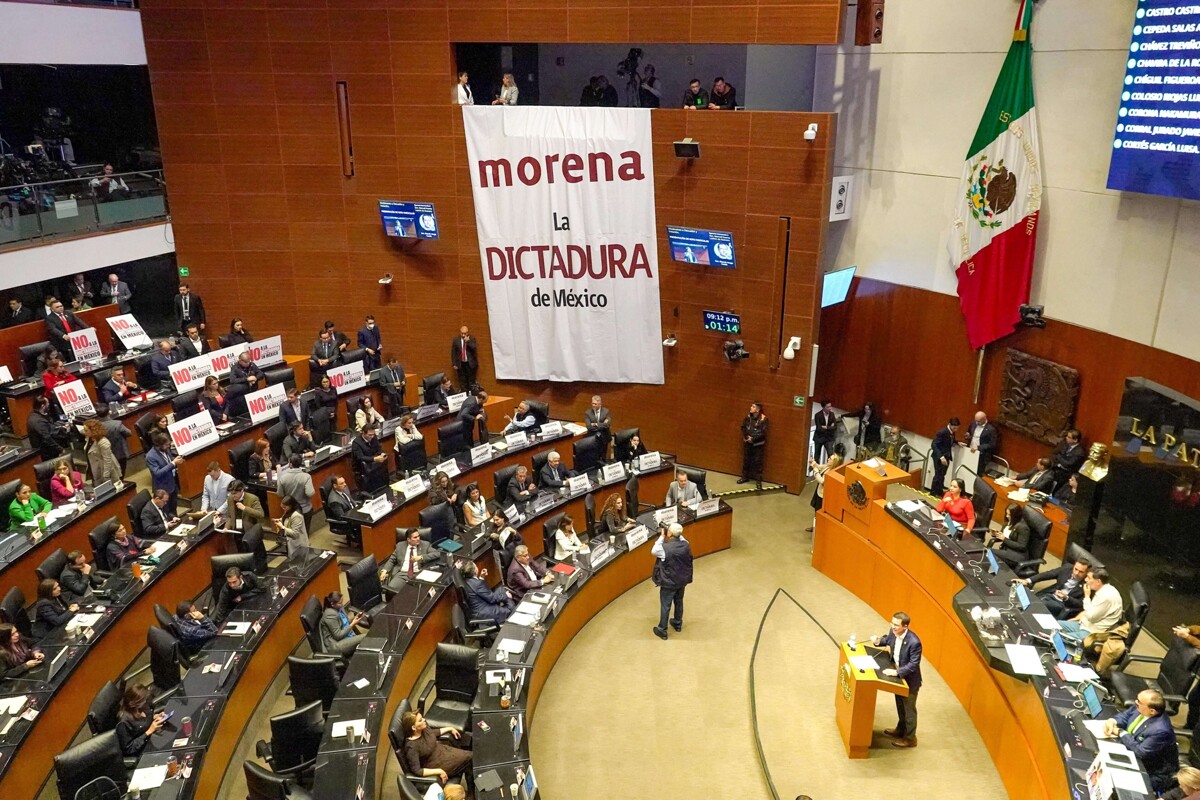
The Senate of Mexico approved with 85 votes in favor and 41 against, in general and the non-reserved articles of the bill that modifies the Political Constitution of the United Mexican States regarding the unappealability of the additions or reforms to the Federal Constitution. The reform received 41 votes from the opposition parties.
Presenting the bill, Morena senator Óscar Cantón Zetina, on behalf of the Constitutional Points Commission, explained that the purpose of the reform is to establish that actions of unconstitutionality and constitutional controversies will not proceed against the reforms approved by Congress. It also aims to prevent the amparo trial from being used to challenge these modifications.
During the session, a heated debate arose among the senators, where Morena legislators defended the reform arguing that this measure will prevent the Judiciary from hindering the changes promoted by the Legislature. Gerardo Fernández Noroña, president of the Senate, noted that the reform does not affect people's right to amparo but seeks to prevent its use to harm the people.
On the other hand, opposition legislators, such as PAN senator Ricardo Anaya Cortés, completely rejected the bill, considering it an attempt to centralize power and limit the legal resources of citizens to defend themselves against abuses by authorities. Despite the objections of the opposition, the bill was approved with the majority support of Morena and its allies PT and PVEM.
The proposed reform generated controversy as it was seen as an attempt to establish constitutional supremacy and limit legal avenues to challenge Congress's decisions. Opposition parties presented suspensive motions arguing that such a change would pose a risk to the balance of powers in the country.
In short, if approved, this reform would significantly alter the Mexican legal system by restricting the possibilities of challenging Congress's decisions and strengthening legislative control over constitutional reforms, which would further prolong the debate given the existing differences among various political parties.














